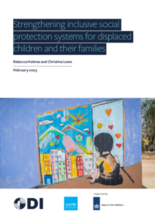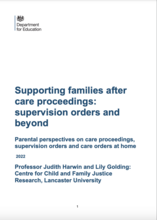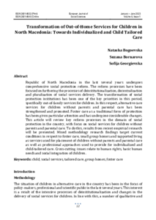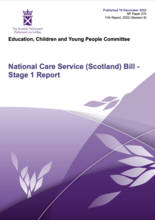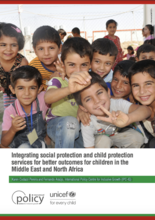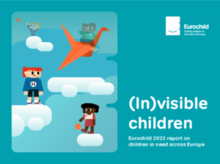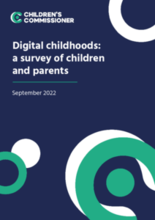Displaying 21 - 30 of 461
This learning event was an opportunity for care reform advocates and practitioners to learn more about social protection – as well as economic strengthening interventions - from researchers and practitioners in the field.
Authored by the ODI in partnership with UNICEF, this paper assesses the benefits of inclusive social protection from a displacement and child-centred perspective.
This UK Department for Education report charts the experiences and views of parents in the UK whose children were made subject to a supervision order or a care order at home at the end of care proceedings.
This article reviews the key reform processes in the domain of social protection in the the Republic of North Macedonia, with a focus on social services for children without parents and parental care.
In their Stage 1 Report published on 19 December, the Scottish Parliament's Education, Children and Young People Committee warned that plans to integrate children's services into the National Care Service lack vital information; it is not currently possible to have a clear view on whether children’s services should be included under a National Care Service; and urged the government to provide more details on the financial implications.
In this U.S.-based study, over 200 pre-adolescent children recently placed into out-of-home care were asked about the difficulty and helpfulness of placement and how their lives might be different had they not been removed. The same participants were interviewed 10 years later.
This research report, developed by the IPC-IG and the UNICEF MENA Regional Office for Middle East and North Africa, presents five case studies that demonstrate how integrated social protection and child protection systems enhance efficiency, especially of the social service workforce, and improve socio-economic and child outcomes: Tunisia, Morocco, Iraq, Egypt, and Brazil.
This report highlights the recommendations and priorities that EU decision-makers and national governments can do to support the most vulnerable children and prevent widening inequalities.
This report aims to understand digital childhoods, and what can be achieved through the Online Safety Bill to protect children online. The Children’s Commissioner’s Office (CCo) commissioned a survey of 2,005 children aged 8-17 and their parents. This survey is nationally representative of children in England, by age, gender and region. All statistics mentioned in this report are from this survey.
Annual report of the Special Representative of the Secretary-General (SRSG) on Violence Against Children to the UNGA. SRSG reports annually to the Human Rights Council and the General Assembly on progress achieved and lessons learned on the protection of children from violence.

